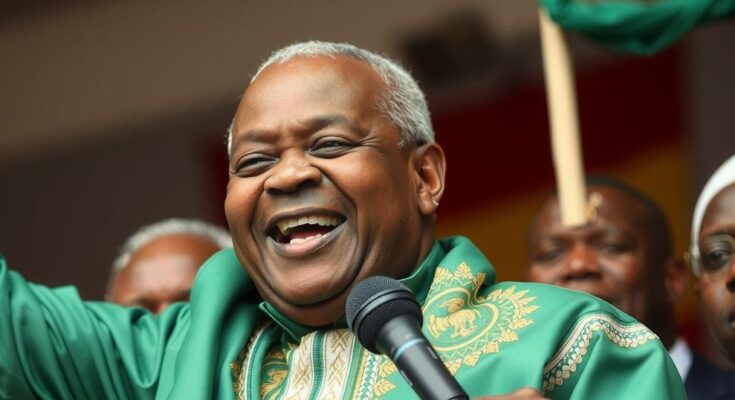John Dramani Mahama has been declared the winner of the presidential election in Ghana with 56.55% of the votes. His main rival, Mahamudu Bawumia, conceded defeat, leading to a peaceful transition. This marks Mahama’s return after previously serving as president from 2012 to 2016.
The Electoral Commission of Ghana has officially announced that former president John Dramani Mahama has won the presidential election with 56.55% of the total votes. The announcement was made on Monday, following the electoral proceedings held on Saturday. Mahama’s primary opponent, Mahamudu Bawumia, who currently serves as vice president and represents the ruling party, conceded defeat in both the presidential and accompanying legislative elections to mitigate potential tensions. The commission reported that votes have been tallied from 267 out of 276 constituencies, revealing a voter turnout of 60.9%. Mahama, aged 66, is returning to political prominence after previously serving as the president from 2012 to 2016, and he framed his rival’s campaign as a continuation of previous policies that contributed to Ghana’s significant economic challenges.
In the context of Ghana’s political landscape, John Dramani Mahama’s victory represents not only a return to leadership but also a shift in the direction of the country’s governance. His tenure as president from 2012 to 2016 was marked by significant economic issues, and he has positioned himself as a leader capable of addressing these challenges. The recent election results may reflect a desire among Ghanaian voters for change, as evidenced by Mahama’s successful campaign against the incumbent vice president, Mahamudu Bawumia.
In conclusion, the recent presidential election in Ghana has culminated in the victory of John Dramani Mahama, who garnered 56.55% of votes. The concession by his opponent, Mahamudu Bawumia, has contributed to a sense of stability following the election. This outcome is significant as it signals a potential shift in policy direction and governance in Ghana, highlighting the electorate’s response to past economic difficulties experienced under previous administrations.
Original Source: www.usnews.com




